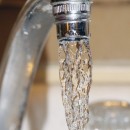Clean water is a fundamental part of a healthy lifestyle. The majority of our society relies on municipal water sources to supply their household needs. Most city water sources contain highly contaminated forms of water that are then sanitized with potent chemical agents. Water filtration is especially important to make municipal water acceptable to drink.
Municipal water systems contain chemical residue from pesticides, herbicides and industrial waste. It also contains several strains of pathogenic bacteria and viruses. The Environmental Protection Agency (EPA) has accepted the definition of “pure” water as that which is free of bacterial components. This does not include the chemical contaminants that threaten human health. A water purification system focuses solely on removing bacterial components without attempting to rid the water of chemicals and minerals.
Water filtration systems are designed to remove these dangerous chemicals and heavy metals. Municipal water systems use chlorine and other disinfectant byproducts (DBPs) to sanitize the water. This water is then shunted into the city’s plumbing system where residents are able to use it in their homes. Water filtration systems specialize in removing the chlorine, DBPs and chlorine resistant parasites like cryptosporidium and giardia.
Different types of water filtration
Distilled Water System: This process reliably removes bacteria, viruses and dangerous heavy metals like lead, arsenic, aluminum and mercury. This is ideal for areas where non-municipally treated water is present as it effectively prevents disease outbreaks.
This process boils and evaporates the water away from its dissolved minerals. Without these elements the hydrogen composition becomes greater in proportion making the water very acidic. The water seeks to balance itself out by pulling minerals from the body and contaminants from the container it is found in.
Another problem with distillation is that any contaminants that vaporize at a lower temperature than the water will be condensed and concentrated in the finished distilled water. This includes volatile organic compounds such as DBPs.
Carbon Filtration System: These systems utilize the adsorption process through carbon and multimedia filters. Adsorption refers to the chemical attraction and strong bonding between the contaminant and the surface of the media. These are considered by the EPA as the best available technology for removing organic chemicals such as pesticides, herbicides and industrial chemicals.
The two major types of carbon filtration are granular activated carbon (GAC) or powdered block carbon. Carbon block filters are typically a bit more expensive but have a higher contaminant removal ratio. The two most important factors that affect the efficiency of these filters are the amount of carbon in the unit and the amount of time the contaminant spends in contact with it. The more carbon and lower the flow rate of the water, the more time the contaminants will be in contact with the carbon and the greater absorption that will take place.
Activated carbon filters range from 50 microns (least effective) to 0.5 microns (most effective). Typical sink counter-top or under-the-counter systems have between 12-24 ounces of carbon. Coconut shell carbon typically costs about 20 percent more than other forms such as bituminous and wood. Coconut is considered to be the most effective of the three forms.
Reverse Osmosis System: Many experts feel that this is the best system for cleaning toxic contaminants out of the water. The semi-permeable membrane used in reverse osmosis contains tiny pores that water can flow through. These small pores restrict organic compounds, toxins, bacteria, pathogens and natural minerals which are larger than water. Unfortunately, this system also wastes two to three gallons of water for every gallon of clean water it produces. It is also incredibly slow compared to other filtration systems.
Article Sources:
http://www.home-water-purifiers-and-filters.com
http://www.historyofwaterfilters.com/reverse-osmosis-pc.html
http://www.historyofwaterfilters.com/filtration-pc.html
http://www.lenntech.com
http://www.allgoodwaterfilters.com





